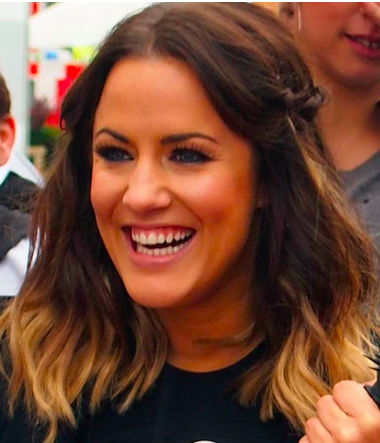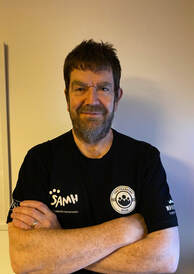|
When anyone chooses to end their life it’s a tragedy. The people they leave behind - loved ones, family, friends, colleagues - are always left with the same, unanswerable questions. Why did this happen? Could this have been prevented? Were there signs the person’s mental state was unbalanced? What could I have done to change their mind? These questions will always arise afterwards. But the crucial period for anyone in mental distress is beforehand. When someone is going through a challenging time they need support as soon as possible, in whatever form anyone near to them thinks might help, whether that’s a discreet chat, or steering them towards helplines, websites, or professional intervention. Caroline Flack’s death earlier this year was testament to the way someone experiencing inner turmoil under the remorseless scrutiny of the British tabloid press can find themselves in an especially vulnerable place. Caroline, who had presented X-Factor, I’m a Celebrity Get Me Out of Here, Strictly Come Dancing and Love Island, was used to her name appearing in headlines. An attractive TV presenter, her exes have included Prince Harry and teenage pop idol Harry Styles. Press coverage went with the territory. But when news broke about her facing domestic assault charges, the redtops began circling like sharks around chum. What exacerbated Caroline’s predicament was her fragile mental condition. Close friends have divulged she had confided about ‘battling her demons’ for years. More recently, she had gone on record to discuss the pain behind the apparently successful public façade. She opened up about her issues in the most public way possible, posting to her 2.6 million Instagram followers: “People see the celebrity lifestyle and assume everything is perfect, but we’re just like everyone else. Everyone is battling something emotional behind closed doors — that’s life. Fame doesn’t make you happy.” She also urged her fans to try and be more vocal about their mental health struggles. Caroline had admitted hitting her boyfriend, tennis player Lewis Burton, after discovering his infidelity. The Crown Prosecution Service (CPS) originally decided on a caution, but the police had asked them to revisit this decision. The thought of a court case being reported in every salacious detail pushed Caroline over the edge. A leading barrister, Chris Daw QC, accused the police and CPS of ‘over-scrutinising’ the case, stating Caroline should have been offered the chance to accept a police caution. “Almost everything that could have gone wrong, went wrong. She became a victim of her own celebrity. Were she not famous I have little doubt the CPS’s position on a caution would have been accepted by the police. I have little doubt that her celebrity was a factor in the eventual changing of the decision by the CPS which ultimately led to all of the publicity and led to the consequences that we know about.” Friends divulged she had confided about ‘battling her demons’ for years. She opened up about her issues in the most public way possible, posting to her 2.6 million Instagram followers: Fame doesn't make you happy. Everyone is battling something emotional behind closed doors. Justification for the CPS decision to press ahead with the charges was made by former chief prosecutor Nazir Afzal. “Last year there were three-quarters of a million reports to police and only 10 percent were prosecuted. We have an epidemic of domestic abuse. They (the CPS) have been geared up to be more robust when dealing with these cases and prosecutors, we have to remember, are independent. They don’t operate for the victim, they operate for the public. The public have said, we want domestic abuse taken seriously.” Lewis Burton asked for the charges to be dropped, posting on Instagram: “Caroline is the most lovely girl. Loyal and kind. She doesn’t deserve any of this.” But even when a victim of alleged domestic violence drops the charges, it is the police or CPS who decide whether to proceed. The problem is that following the letter of the law fails to take individual circumstances into account. As Daw stated, "There was no consideration of the mental health of Flack and the significant emotional and psychological risk of her trial." He added he had ‘little doubt’ if she had not been famous she would have been offered and accepted a caution – preventing further publicity and the terrible consequences of her being charged. At the Inquest into Caroline’s death, her mother Christine told the police officer who appealed for the prosecution to go ahead, "You should be disgusted with yourself. Did you take into account that Mr Burton was intoxicated, and had been drinking all day? In the phone call, his account was unreliable due to his state, while Caroline was consistent the whole way through her story." The officer replied: "I don’t believe I recall that, I can’t remember." The Inquest heard Caroline cut her own arm after striking Burton having discovered texts on his phone indicating he was cheating on her. Burton was accused of taking pictures of blood-soaked sheets after Caroline had been taken away by police, then passing them on to friends, including an ex-girlfriend. These images then appeared in The Sun, no doubt with an appropriate sum of money changing hands. Literally, blood money.
What is plain to see is that Caroline, a much-loved daughter and sister, who had clearly been struggling with mental health issues, deserved so much better. Comments are closed.
|
|



 RSS Feed
RSS Feed
